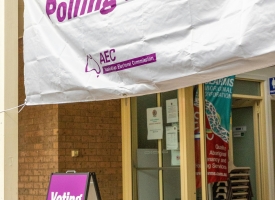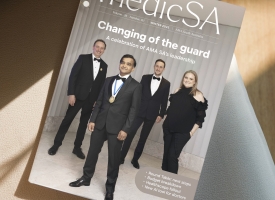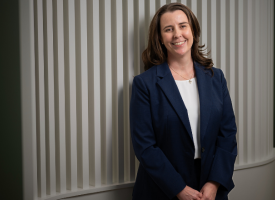AMA pushes for hospital boards to combat bullying
AMA updated Position Statement re-affirms zero tolerance of bullying, harassment and discrimination
The AMA is pushing all states and territories to follow South Australia’s lead and legislate to make hospital boards directly and explicitly responsible for the psychosocial wellbeing of their staff.
Continuing efforts to address all forms of bullying, discrimination and harassment and improve the workplace culture of medicine, the AMA is urging all state health minsters to adopt the SA model and will promote this approach at a Medical Board of Australia (MBA) symposium in Melbourne today.
The MBA’s Culture of Medicine Symposium was convened in response to the high occurrence of bullying and harassment reported in its latest Medical Training Survey. The survey found one in three Doctors in Training experienced or witnessed bullying, harassment or discrimination, and seven out of 10 of those said their medical training was adversely affected as a result.
AMA Vice President, Dr Chris Moy said prior to the South Australian legislation passing in December, it was unclear where the responsibility for the wellbeing of hospital workers lay, and there was no requirement for hospital boards to act to provide a safe psychosocial workplace.
“We think the South Australian model provides the missing foundational piece for a national approach. Without a clear line of accountability, there is little action. Hospital boards, like their corporate counterparts, should have the wellbeing of their staff foremost in their minds alongside their responsibilities for patient care and budgets, and the AMA will be pushing all states and territories to adopt this model.
“The AMA couldn’t be clearer. We’ve reaffirmed our zero-tolerance approach to all forms of bullying, harassment and discrimination in our updated Position Statement which also makes recommendations to provide for and promote the physical and psychosocial health, safety, and wellbeing of medical professionals in the workplace,” Dr Moy said.
Chair of the AMA Council of Doctors in Training (CDT), Dr Hash Abdeen, said across the medical workforce, trainee doctors are disproportionately affected.
“Trainee doctors are under the supervision of senior practitioners for years at a time in their training and their ability to provide high quality patient care would certainly be compromised if they’re experiencing bullying or discrimination.
“The incidence of this is even worse for our Aboriginal and Torres Strait Islander trainees where it’s one in two. That’s a shameful indictment when every second Aboriginal and/or medical worker is experiencing bullying, harassment or discrimination. There’s obviously an element of racism there and that’s also a topic at the symposium,” Dr Abdeen said.
The CDT is also advocating for staff wellbeing to be included in the National Safety and Quality Health Service Standards with the Australian Commission on Safety and Quality in Health Care. This recognises that poor workplace culture impacts negatively on patient safety and is an integral component of accreditation.
The Position Statement acknowledges “a combination of organisational and professional hierarchies, gender inequity, the competitive nature of medical practice and training, and systems under pressure, has led to a workplace and culture where inappropriate workplace behaviours have become entrenched in many areas of healthcare over time.”
Dr Abdeen said while changing attitudes and entrenched behaviours can be difficult, reminding doctors their patients can also be impacted can be effective.
“We are seeing more data and more evidence showing health outcomes for patients are diminished when practitioners work in an environment which does not support speaking up for safety. Cultural change is really what’s needed here but role modelling from senior leaders is key.
“We need to keep saying if you are a senior clinical role model who is able to provide care that is culturally safe and fosters a safe environment for trainees, that’s going to reflect better on you, be better for patients, and also benefit that next generation of doctors coming through,” Dr Abdeen said.
Dr Moy and Dr Abdeen are participating in today’s symposium along with, among others, Professor Johanna Westbrook from the Australian Institute of Health Innovation, Macquarie University and Dr Peter Baldwin, Clinical Psychologist and Clinical Research Fellow with the Black Dog Institute.
The AMA has additionally coordinated two roundtables with key doctor mental health and wellbeing organisations, advocating steps to reduce bullying and harassment in the workplace.



